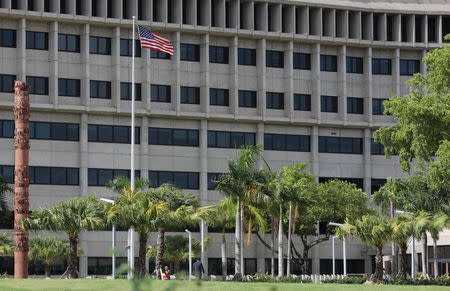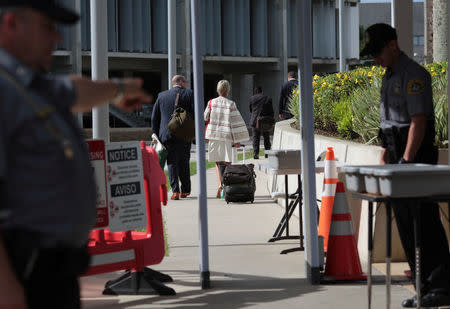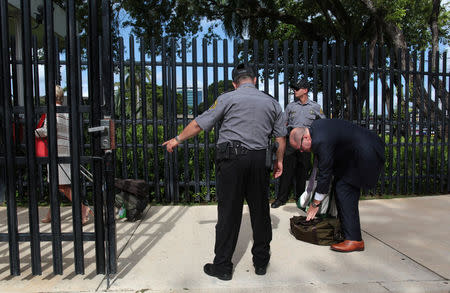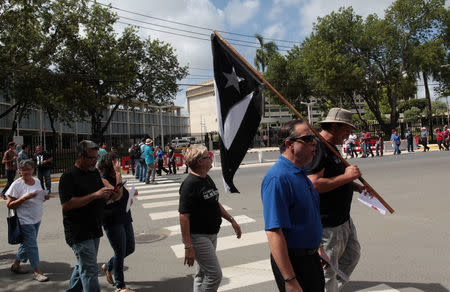Puerto Rico's biggest creditors envision resolving key dispute this year
By Nick Brown
SAN JUAN (Reuters) - U.S. District Judge Laura Taylor Swain, presiding over Puerto Rico's massive bankruptcy, approved an agreement on Wednesday aimed at resolving creditors' competing claims on the U.S. territory's sales tax revenue by year's end.
The deal between the two biggest creditor classes, General Obligation (GO) bondholders and COFINA bondholders, includes appointment of an agent for each side. The agents are charged with pursuing the best resolution for their debtor’s estate as a whole, as opposed to advocating for particular creditors of that debtor.
COFINA’s bonds are backed by the island’s sales tax revenue, while the central government's General Obligation debt carries a constitutional guarantee giving it a claim on all Puerto Rico’s revenues. Both sides assert an ironclad claim on the island’s sales taxes.
The deal, approved by Swain at a hearing taking place in San Juan, gives the two sides until Dec. 15 to either settle the dispute or have Swain issue a ruling.
The groups, which together hold about half the U.S. territory’s $72 billion in debt, are fighting over which side has the primary claim on sales tax money. Settling that fight is crucial to clarifying Puerto Rico’s convoluted debt structure and resolving its bankruptcy, which it filed in May under the federal Puerto Rico rescue law known as PROMESA.
Separately, Swain held off on ruling on a request by creditors of Puerto Rico’s bankrupt power utility, PREPA, to appoint a receiver at the agency.
She denied a motion by a group of cities and towns to form an official committee in the case, whose attorneys’ fees would be paid by the island’s bankruptcy estate.
Swain said it was unclear whether the municipalities had valid claims against Puerto Rico’s government, and she could not form a committee for “non-persons.”
Michael Rochelle, a lawyer for the towns, said municipalities face budget cuts of as much as 50 percent. “This place will become Greece,” Rochelle warned. “We will have municipalities needing to be bankrupted.”
In addition to its debt, held by millions of American investors, Puerto Rico is shouldering insolvent public pensions, a collapsing healthcare system, and a 45 percent poverty rate. A high emigration rate is cutting into the tax base, exacerbating its inability to pay off debt.
Much of the morning discussion centered on fees for lawyers and other professionals, which some experts believe could top $1 billion.
A handful of firms whose fees are being paid by Puerto Rico’s estate agreed to discounts of between 15 and 20 percent. Bankruptcy partners at top law firms often bill more than $1,000 an hour.
(Reporting By Nick Brown; Editing by Daniel Bases, Bernard Orr and David Gregorio)




